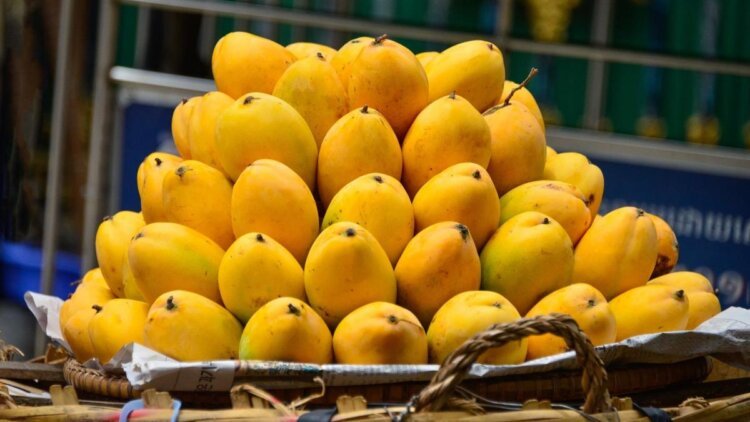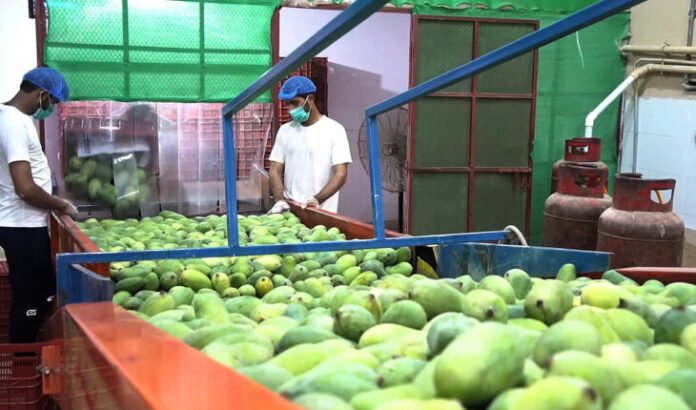KARACHI: Pakistan’s mango exports are once again under international scrutiny as fresh allegations emerge that phytosanitary protocols mandated by importing countries are being systematically violated. These violations, if substantiated, could jeopardize the country’s trade reputation and threaten access to critical markets such as Iran, the European Union, and Australia.
Multiple complaints have reportedly been lodged with the Prime Minister and relevant ministries, including the Ministry of National Food Security and Research (MoNFS&R), Ministry of Commerce, and the Trade Development Authority of Pakistan. The allegations pertain to malpractice at several Hot Water Treatment (HWT) facilities, where mangoes are allegedly not being treated in accordance with prescribed standard operating procedures (SOPs). Inspectors from the Department of Plant Protection (DPP) are accused of issuing phytosanitary certificates with falsified entries, enabling the export of untreated or inadequately treated mango consignments to sensitive markets.

In a formal complaint to the Prime Minister, Barrister Junaid Khan has claimed that certain HWT plants, reportedly operated by a closely connected group of exporters, are functioning without proper compliance oversight. These facilities, he alleges, are linked with a politically influential clearing agent at the Taftan–Mirjaveh border crossing with Iran.
Inspections have reportedly revealed significant procedural lapses at these plants, including the use of non-food-grade equipment, inadequate water circulation, improper submersion of mangoes during treatment, and false claims regarding processing capacity. Such deficiencies directly undermine the pest disinfestation process—a critical requirement for international phytosanitary compliance.
There are also allegations of manipulation of treatment records and manual tampering of data to create the appearance of compliance. These doctored records are then used to acquire phytosanitary certificates that facilitate customs clearance in Iran, allegedly with the support of contacts within Iran’s agricultural and plant protection authorities.
The National Agri Trade and Food Safety Authority (NA&FSA), which has now taken over regulatory functions previously handled by the DPP, is responsible for enforcing phytosanitary standards for mango exports to countries like Iran, the EU, and Australia. These include pre-season audits of HWT plants at full operational capacity, mandatory live video surveillance of mango processing, electronic documentation, and real-time tracking of consignments up to the Taftan border.
However, sources within the sector report that a group of HWT operators resisted the full-capacity audits mandated by NA&FSA for more than 20 days after the mango export season began. These operators allegedly used political influence to manipulate inspector postings, enabling them to bypass compliance requirements and obtain renewal accreditation without undergoing full demonstration audits.
Concerns have also been raised about attempts to interfere with staffing at the central monitoring control room. Allegations include lobbying for the appointment of favorable inspectors and attempts to limit scrutiny of rival exporters.
According to bilateral protocols between Pakistan and Iran first signed in 2005 and updated in 2022 any detection of fruit fly in mango consignments may result in the suspension of the implicated HWT plant for one year. Re-approval is contingent upon a successful re-audit and verified compliance.
Despite these agreements, sources claim that every year a group of exporters manages to circumvent these regulations by leveraging political influence and offering bribes to inspectors. These exporters reportedly bypass hot water treatment because they believe it reduces the shelf life and affects the taste of mangoes.
Earlier this season, NA&FSA Director General Tahir Abbas, an officer on deputation from the Customs Group reaffirmed in a meeting with HWT plant operators that no mango consignment to Iran would be cleared without verified hot water treatment, as per the bilateral agreement with the Iranian Plant Protection Organization (PPO). This strict implementation led to a noticeable drop in mango exports compared to previous years.
However, after 20 days of enforcement, the DG has reportedly relaxed supervision at specific HWT plants under political pressure and in response to complaints about declining exports. Meanwhile, other plants continue to face strict inspection protocols, creating a perception of selective enforcement to placate higher authorities.




